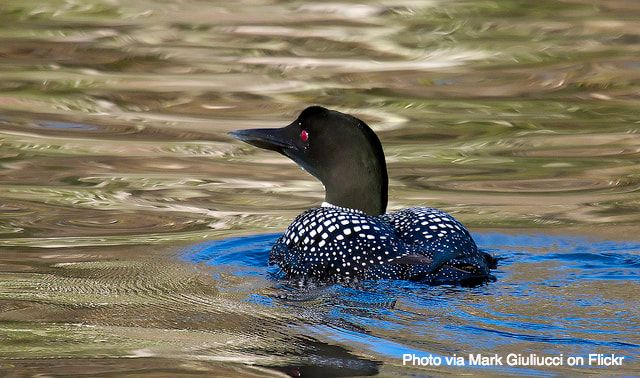|
What do the loons of Minnesota have to do with the BP oil spill in the Gulf of Mexico? While it may seem like a "loony" question because the two places are so far apart, there is potential for some of an $18 billion fund that was created in the wake of the spill to be used for the protection of loon habitat in Minnesota.
The connection between the iconic black and white birds and the gulf oil spill is that some 85% of Minnesota's loons migrate to the gulf each year. When the spill happened in 2010, it killed hundreds of loons immediately, and exposure to chemicals may have impacted many more over the following months. Given this connection, the Minnesota Department of Natural Resources (DNR) has applied for some of the fund to be used for the loons. The funds requested by the state of Minnesota would total about $7.5 million, and would be used to improve and grow loon habitat. They would also create a media campaign to raise awareness about the dangers of lead fishing tackle, which is one of the greatest causes of death among the birds. The money would be spent over the course of 15 years, and much of it would go toward preserving shoreline habitat where the loons breed. When development comes too close to loon nesting grounds, research has shown that they simply stop breeding. The project in Minnesota is one of three that is being recommended for funding by the governmental committee that oversees the BP fund. The other projects include one spanning North and South Dakota for the restoration of black tern habitat, and a proposal to restore sturgeon habitat in the Gulf Coast. The argument is that the impact of the spill, even after eight years, continues to echo through the ecosystem -- and it goes to show that just because oil is no longer visible to the human eye, that it continues to have extremely long-lasting effects. If you’d like to learn more about the loon restoration project, it’s open for public comment on the National Park Service website. |
Details
AuthorMarine Defenders is an educational program designed to reduce chronic oil pollution. Archives
February 2019
Categories
All
|

 RSS Feed
RSS Feed